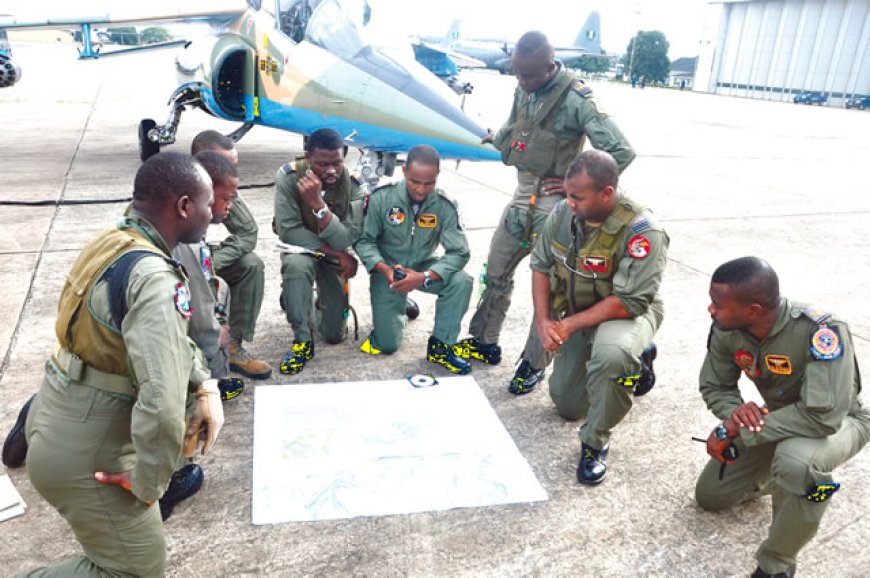Air Force institute graduates 302 military technicians

The Chief of the Air Staff, Air Marshal Hassan Abubakar, has charged newly graduated military technicians from the Air Force Institute of Technology, Kaduna, to deploy their skills with precision and professionalism to strengthen Nigeria’s airpower capability.
Speaking at the graduation ceremony of 302 officers, airmen, and airwomen from various military courses for the 2024/2025 session on Wednesday, Abubakar described AFIT as a “true centre of excellence” in technical manpower development and a key player in Nigeria’s quest for technological self-reliance in defence.
“Today, we celebrate yet another set of proud graduates from this esteemed institute, whose tradition of excellence continues to strengthen the Nigerian Air Force and advance our national aspirations,” he said.
The Air Chief, who was the Special Guest of Honour, congratulated the graduands, praising their “hard work, perseverance, and commitment,” which he described as a significant step in their professional careers
Highlighting AFIT’s nearly five decades of evolution, Abubakar said the institute had produced highly skilled professionals and pioneered innovations that improved aircraft maintenance and operational readiness.
“AFIT stands tall as one of the most sought-after institutions of higher learning in Nigeria, a reputation built on academic excellence, strict discipline, zero tolerance for strikes, and adherence to the principle of federal character,” he declared.
He noted the establishment of the NASENI North-West Technology Innovation Hub within AFIT’s premises as evidence of its growing role in advancing defence technology. He also disclosed that AFIT recently conducted a tuition-free training programme for the Nigerian Army Corps of Supply and Transport to build manpower for the Army Aviation Wing.
These landmark milestones firmly underscore AFIT’s stature as a centre of excellence, strengthening not only the Nigerian Air Force but also the broader national defence architecture and regional security framework,” he said.
Abubakar told the graduands that their expertise was critical as the Nigerian Air Force inducts new-generation aircraft with sophisticated systems.
You are now the custodians of these platforms, entrusted with their safety, airworthiness, and mission readiness. The Service looks to you to apply your skills with precision, innovation, and dedication, ensuring our assets remain combat-ready at all times,” he said.
He urged them to embody the Air Force’s core values of integrity, service before self, and excellence, stressing that discipline and continuous learning would shape their careers.
“The future of the Nigerian Air Force lies in your hands. By living up to these ideals, you will not only help defeat terrorism and insurgency but also make our beloved country a bastion of peace, progress, and sustainable development,” he added.
The Air Chief also commended President Bola Ahmed Tinubu for his “visionary and outstanding leadership” and unwavering support to the Armed Forces, particularly the Air Force.
Earlier, the Commandant of AFIT, Air Vice Marshal Sani Rabe, said the 302 graduates comprised 69 officers and 233 airmen and airwomen. He credited their successful training to the consistent support of the Chief of the Air Staff.
If the desire to have a technical school for the Nigerian Air Force was important in 1977, it has today become indispensable—the lifewire of the Air Force’s flying activities. AFIT continues to produce the skilled manpower required to keep our air assets operational,” Rabe said.
He acknowledged that manpower constraints caused by ongoing military operations had posed challenges but maintained that AFIT had upheld high standards.
“Despite the operational demands across the country, AFIT has continued to run its programmes with remarkable success. We remain committed to enhancing training quality while creating a conducive learning environment for our students,” he added.
The ceremony, held at the Ibrahim Alfa Auditorium, NAF Base, Kaduna, was attended by top military chiefs, former commandants, and families of the graduating personnel.

 admin
admin 


